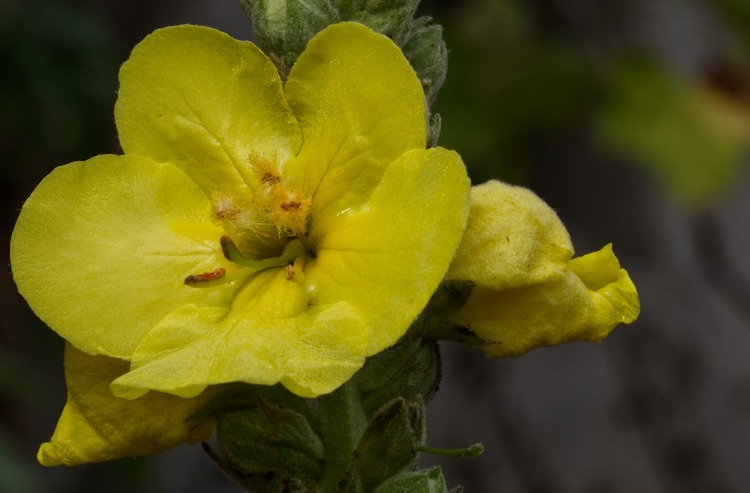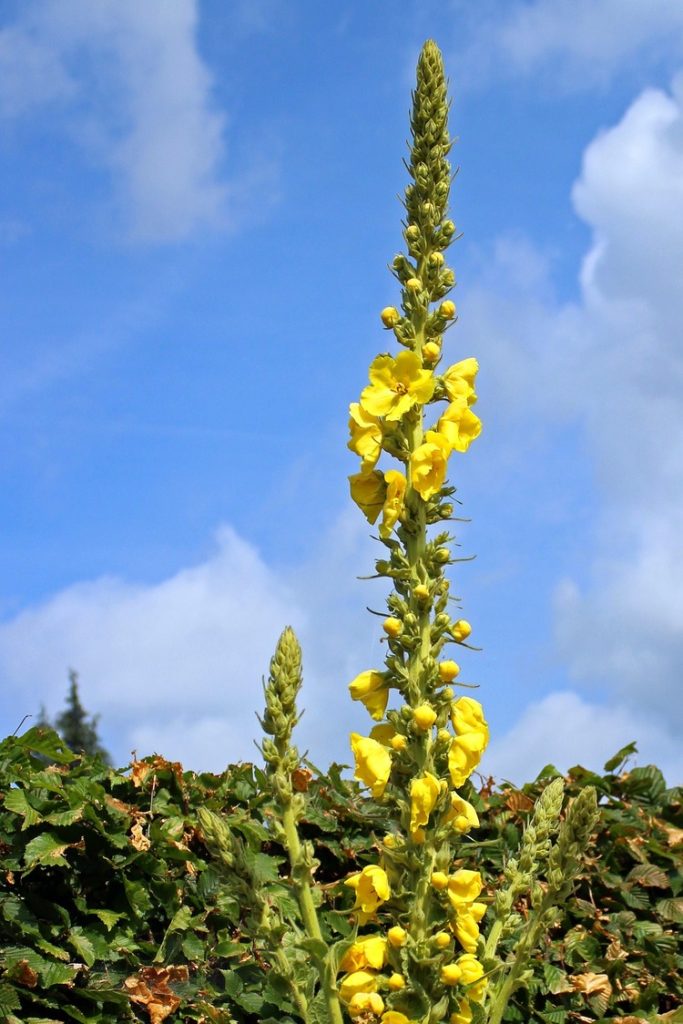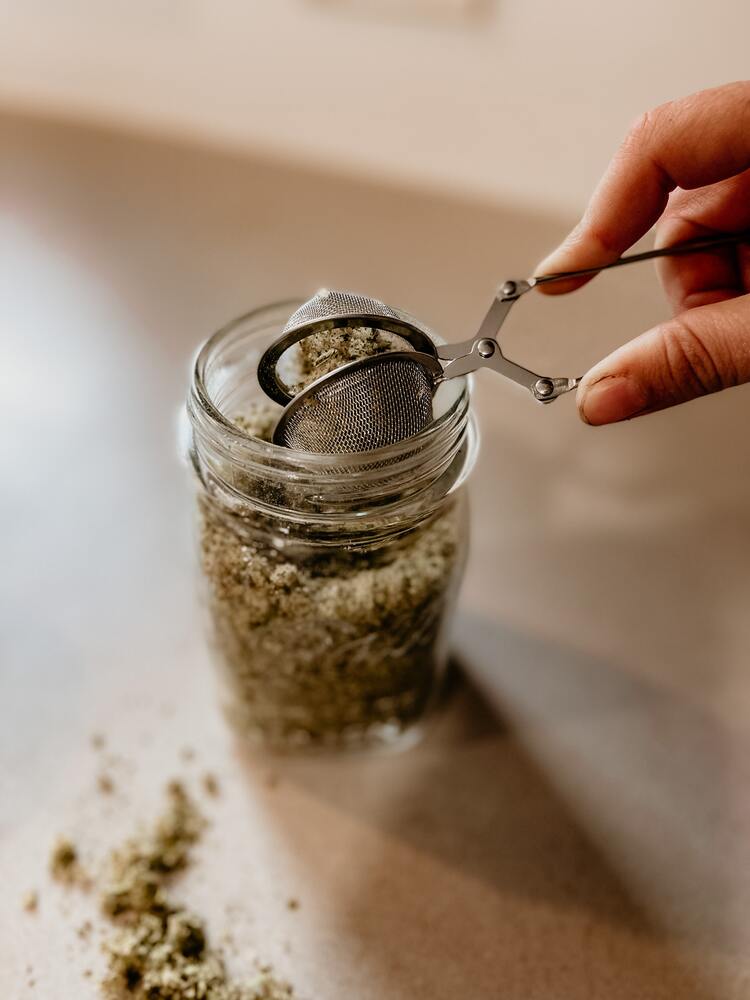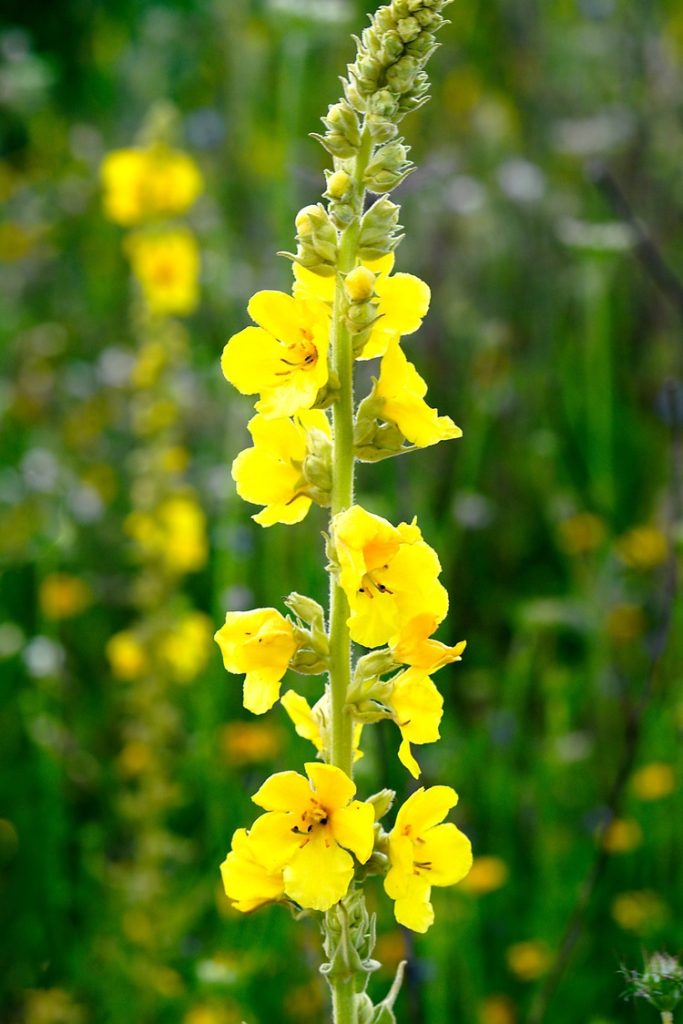What does mullein tea taste like? Mullein tea is a popular herbal tea made from the leaves and flowers of the mullein plant. This tea has been used for centuries for its medicinal properties and is known for its soothing effects on the respiratory system.
When it comes to the taste of mullein tea, it has a mild, slightly sweet flavor that is palatable for most people. The tea has an earthy and pleasant subtle aroma, making it an excellent choice for those looking for a relaxing cup of tea. However, some people may find the tea slightly bitter, but this can be easily remedied by adding a sweetener.
Keep reading to find out more about this one-of-a-kind herbal tea.
Please note: This article contains affiliate links, meaning I may earn a commission if you make a purchase by clicking a link. Of course, this comes at no extra cost to you and helps me keep offering readers solid information.

What is Mullein Tea?
If you’re wondering what mullein tea is, it’s an herbal tea made from the leaves and flowers of the mullein plant, scientifically known as Verbascum thapsus. The plant, known as common mullein, is native to Europe and Asia but has been naturalized in North America and other world regions.
The plant is known for its tall, erect stem covered in soft, fuzzy leaves and tall spikes of yellow flowers blooming in its second year.
Mullein tea is made by steeping dried mullein leaves and/or flowers in hot water for several minutes.
The leaves and flowers of the mullein plant contain various compounds, including mucilage, glycosides, volatile oils, coumarin, and rotenone. These compounds are believed to have multiple health benefits, which we’ll discuss in more detail in one of the sections below.
What Does Mullein Tea Taste Like?
You’ll notice a mild, slightly sweet flavor when you try mullein tea. The taste is often compared to chamomile tea, with a hint of earthiness. The aroma of mullein tea is also mild, with a subtle floral scent.
While some people may find the taste of mullein tea to be palatable on its own, others may prefer to add a bit of sweetness to it. You can add a teaspoon of honey or a pinch of cinnamon to enhance the sweetness of the tea.
Although mullein tea has a slightly sweet flavor, it has a slight bitterness. This bitterness is not overpowering, but it does add a depth of flavor to the tea. If you prefer a less bitter taste, add a slice of ginger or mint to the tea.
Depending on the part of the plant used and the specific blend, mullein tea can have subtle floral undertones, mainly if it includes the yellow flowers of the mullein plant.
I think mullein tea is a mild and pleasant-tasting tea that is easy to drink. It can be blended with other ingredients to change its flavor profile (if desired).

How to Make Mullein Tea
Making mullein tea is easy and only requires a few simple ingredients. Here’s how to make mullein tea at home:
Ingredients
To make mullein tea, you will need:
- 1-2 tablespoons of dried mullein leaves or flowers
- 2 cups of water
- Honey or other sweeteners (optional)
- Cinnamon or mint (optional)
- Cheesecloth (optional)
- Lemon wedge (optional)
Recipe
- Boil 2 cups of water in a small pot.
- Add 1-2 tablespoons of dried mullein leaves or flowers to the boiling water.
- Reduce the heat to low and let the tea simmer for 15-20 minutes.
- Remove the pot from heat and let the tea cool for a few minutes.
- If desired, add honey or other sweeteners to taste.
- You can add a dash of cinnamon or mint for added flavor.
- Strain the tea through a cheesecloth to remove any remaining plant matter.
- Serve hot with a lemon wedge if desired.
Mullein Tea Blends
Mullein tea can be enjoyed independently but is also commonly blended with other herbs to create flavorful and beneficial combinations. Here are a few popular blends:
Mullein and Peppermint
Peppermint adds a refreshing flavor and can help soothe digestion. This blend combines mullein’s respiratory-supportive properties with peppermint’s digestive benefits.
Mullein and Chamomile
Chamomile is known for its calming and relaxing properties. Combining mullein and chamomile creates a blend that supports respiratory health while promoting relaxation.
Mullein and Elderflower
Elderflower is often used for its immune-supportive properties. Blending mullein with elderflower can create a tea that helps support the respiratory system while providing an immune boost.
Mullein and Ginger
Ginger adds a spicy and warming flavor while providing potential health benefits. This blend combines the soothing properties of mullein with the digestive and anti-inflammatory effects of ginger.
Mullein and Lemon
Adding lemon to mullein tea can enhance the flavor and provide a refreshing twist. Lemon is also rich in vitamin C, which can support the immune system.

Health Benefits of Mullein Tea
Mullein tea offers numerous health benefits. Here are some of those:
Respiratory Health
Mullein tea is a popular natural remedy for respiratory ailments such as cough, asthma, and bronchitis. It contains saponins that act as an expectorant, helping to loosen phlegm and mucus in the respiratory tract. The mucilage in mullein tea helps to soothe irritated mucous membranes, making it an effective natural remedy for sore throat and coughs.
Anti-Inflammatory Properties
This tea contains flavonoids that have anti-inflammatory properties. This makes it an effective natural remedy for reducing inflammation in the body. It can benefit people with respiratory conditions, as inflammation in the respiratory tract can cause breathing difficulties.
Antiviral and Antibacterial Properties
Mullein has been shown to have antiviral and antibacterial properties. It can help to boost the immune system and protect against viral and bacterial infections. This makes it an excellent natural remedy for preventing and treating colds and flu.
Pain Relief
Mullein tea has analgesic and antispasmodic properties, which can help relieve pain and spasms. It can benefit people with respiratory conditions such as COPD, as it can help ease coughing and breathing difficulties.
Sedative Properties
In a related way, it has a mild sedative effect, which can help to promote relaxation and sleep. This makes it an excellent natural remedy for people with trouble sleeping or anxiety.
Mullein tea is a natural and effective remedy for various health issues. If you are taking any medications, it is essential to consult with a healthcare professional before consuming this tea to ensure no potential interactions.
History and Traditional Use
Mullein tea has a long history of use as a medicinal plant in traditional medicine. It was used by the ancient Greeks and Romans to treat respiratory problems, and it has been used in Europe for centuries as an herbal remedy for various ailments.
In America, Native American tribes used mullein tea to treat coughs, sore throats, and other respiratory conditions. They also used the leaves as a poultice to treat skin irritations and wounds.
In Asia, mullein tea is not as well-known but is still used in some traditional medicine practices. The plant’s yellow flowers are particularly valued in Chinese medicine and are used to treat respiratory problems and inflammation.
Today, mullein tea is still a natural remedy for respiratory problems. It is also used to soothe sore throats and reduce inflammation.

Buying Recommendations
In this section, we are sharing our top dried mullein recommendations (to acquire from an online retailer).
FullChea – Mullein Leaf Tea Bags

Buddha Teas Organic Mullein Leaf Tea

Yogi Tea – Breathe Deep – Supports Respiratory Health with Eucalyptus, Thyme, and Mullein Leaves

Adanim Bio Eucalyptus Thyme & Mullein Tea Bags

Well, friends, this is it for now. Have you tried this tea?
To you, what does mullein tea taste like?
More About Floral Teas
What Does Rose Tea Taste Like?
What Does Rose Milk Tea Taste Like?
What Does Lavender Tea Taste Like?
What Does Lavender Milk Tea Taste Like?
What Does Chrysanthemum Tea Taste Like?
What Does Red Clover Tea Taste Like?
What Does Osmanthus Tea Taste Like?